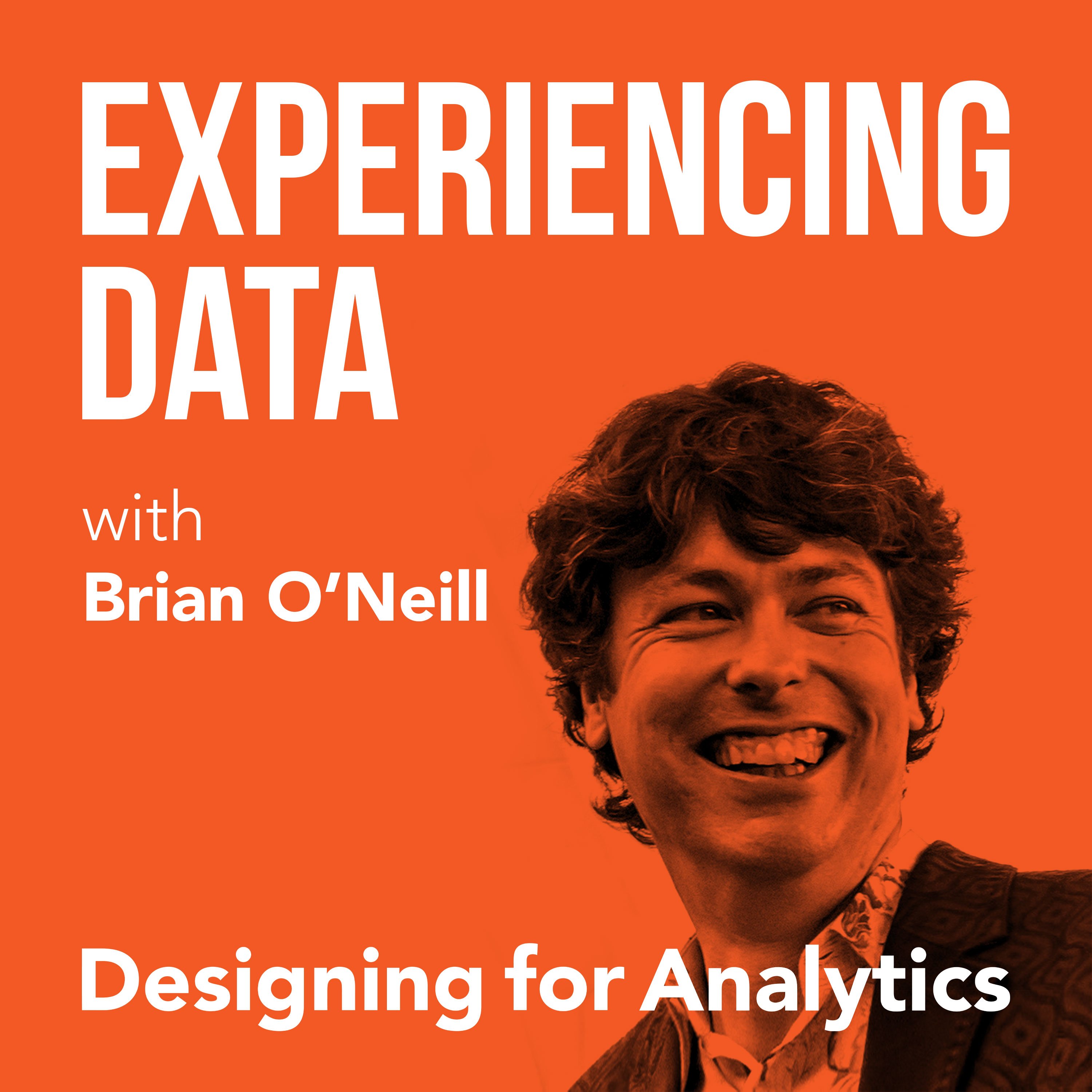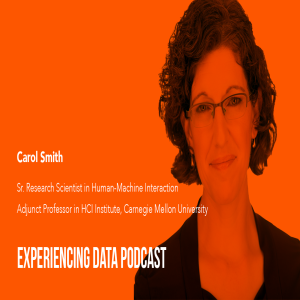

136.1K
Downloads
168
Episodes
Is the value of your enterprise analytics SAAS or AI product not obvious through it’s UI/UX? Got the data and ML models right...but user adoption of your dashboards and UI isn’t what you hoped it would be? While it is easier than ever to create AI and analytics solutions from a technology perspective, do you find as a founder or product leader that getting users to use and buyers to buy seems harder than it should be? If you lead an internal enterprise data team, have you heard that a ”data product” approach can help—but you’re concerned it’s all hype? My name is Brian T. O’Neill, and on Experiencing Data—one of the top 2% of podcasts in the world—I share the stories of leaders who are leveraging product and UX design to make SAAS analytics, AI applications, and internal data products indispensable to their customers. After all, you can’t create business value with data if the humans in the loop can’t or won’t use your solutions. Every 2 weeks, I release interviews with experts and impressive people I’ve met who are doing interesting work at the intersection of enterprise software product management, UX design, AI and analytics—work that you need to hear about and from whom I hope you can borrow strategies. I also occasionally record solo episodes on applying UI/UX design strategies to data products—so you and your team can unlock financial value by making your users’ and customers’ lives better. Hashtag: #ExperiencingData. JOIN MY INSIGHTS LIST FOR 1-PAGE EPISODE SUMMARIES, TRANSCRIPTS, AND FREE UX STRATEGY TIPS https://designingforanalytics.com/ed ABOUT THE HOST, BRIAN T. O’NEILL: https://designingforanalytics.com/bio/
Episodes

Tuesday Dec 29, 2020
Tuesday Dec 29, 2020
It’s not just science fiction: As AI becomes more complex and prevalent, so do the ethical implications of this new technology.But don’t just take it from me – take it from Carol Smith, a leading voice in the field of UX and AI. Carol is a senior research scientist in human-machine interaction at Carnegie Mellon University’s Emerging Tech Center, a division of the school’s Software Engineering Institute. Formerly a senior researcher for Uber’s self-driving vehicle experience, Carol-who also works as an adjunct professor at the university’s Human-Computer Interaction Institute-does research on Ethical AI in her work with the US Department of Defense.
Throughout her 20 years in the UX field, Carol has studied how focusing on ethics can improve user experience with AI. On today’s episode, Carol and I talked about exactly that: the intersection of user experience and artificial intelligence, what Carol’s work with the DoD has taught her, and why design matters when using machine learning and automation. Better yet, Carol gives us some specific, actionable guidance and her four principles for designing ethical AI systems.
In total, we covered:
- “Human-machine teaming”: what Carol learned while researching how passengers would interact with autonomous cars at Uber (2:17)
- Why Carol focuses on the ethical implications of the user experience research she is doing (4:20)
- Why designing for AI is both a new endeavor and an extension of existing human-centered design principles (6:24)
- How knowing a user’s information needs can drive immense value in AI products (9:14)
- Carol explains how teams can improve their AI product by considering ethics (11:45)
- “Thinking through the worst-case scenarios”: Why ethics matters in AI development (14:35) and methods to include ethics early in the process (17:11)
- The intersection between soldiers and artificial intelligence (19:34)
- Making AI flexible to human oddities and complexities (25:11)
- How exactly diverse teams help us design better AI solutions (29:00)
- Carol’s four principles of designing ethical AI systems and “abusability testing” (32:01)
Quotes from Today’s Episode
“The craft of design-particularly for #analytics and #AI solutions-is figuring out who this customer is-your user-and exactly what amount of evidence do they need, and at what time do they need it, and the format they need it in.” – Brian
“From a user experience, or human-centered design aspect, just trying to learn as much as you can about the individuals who are going to use the system is really helpful … And then beyond that, as you start to think about ethics, there are a lot of activities you can do, just speculation activities that you can do on the couch, so to speak, and think through – what is the worst thing that could happen with the system?” – Carol
“[For AI, I recommend] ‘abusability testing,’ or ‘black mirror episode testing,’ where you’re really thinking through the absolute worst-case scenario because it really helps you to think about the people who could be the most impacted. And particularly people who are marginalized in society, we really want to be careful that we’re not adding to the already bad situations that they’re already facing.” – Carol, on ways to think about the ethical implications of an AI system
“I think people need to be more open to doing slightly slower work […] the move fast and break things time is over. It just, it doesn’t work. Too many people do get hurt, and it’s not a good way to make things. We can make them better, slightly slower.” – Carol
“The four principles of designing ethical AI systems are: accountable to humans, cognizant of speculative risks and benefits, respectful and secure, and honest and usable. And so with these four aspects, we can start to really query the systems and think about different types of protections that we want to provide.” – Carol
“Keep asking tough questions. Have these tough conversations. This is really hard work. It’s very uncomfortable work for a lot of people. They’re just not used to having these types of ethical conversations, but it’s really important that we become more comfortable with them, and keep asking those questions. Because if we’re not asking the questions, no one else may ask them.” – Carol
Links
Comments (0)
To leave or reply to comments, please download free Podbean or
No Comments
To leave or reply to comments,
please download free Podbean App.